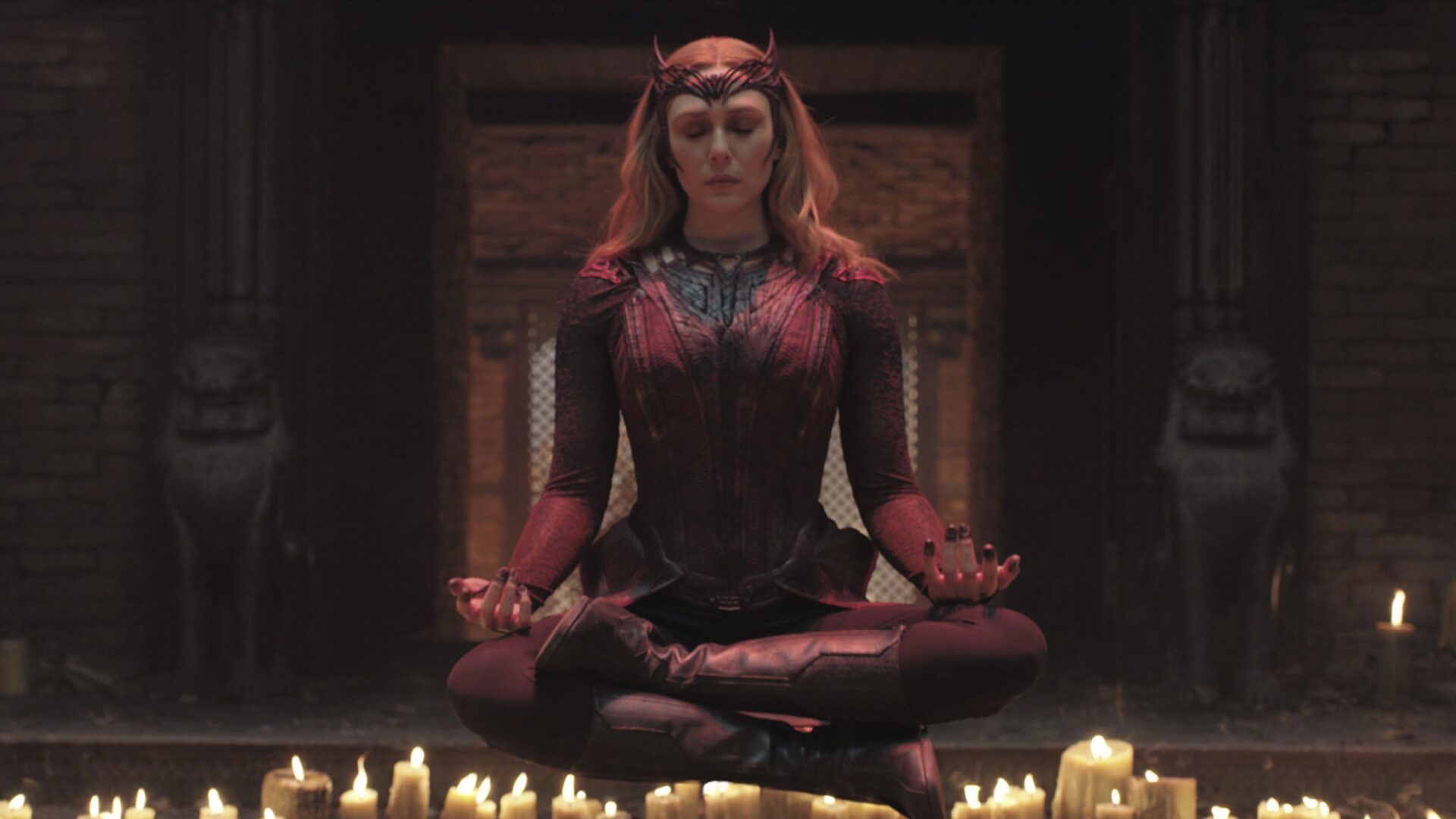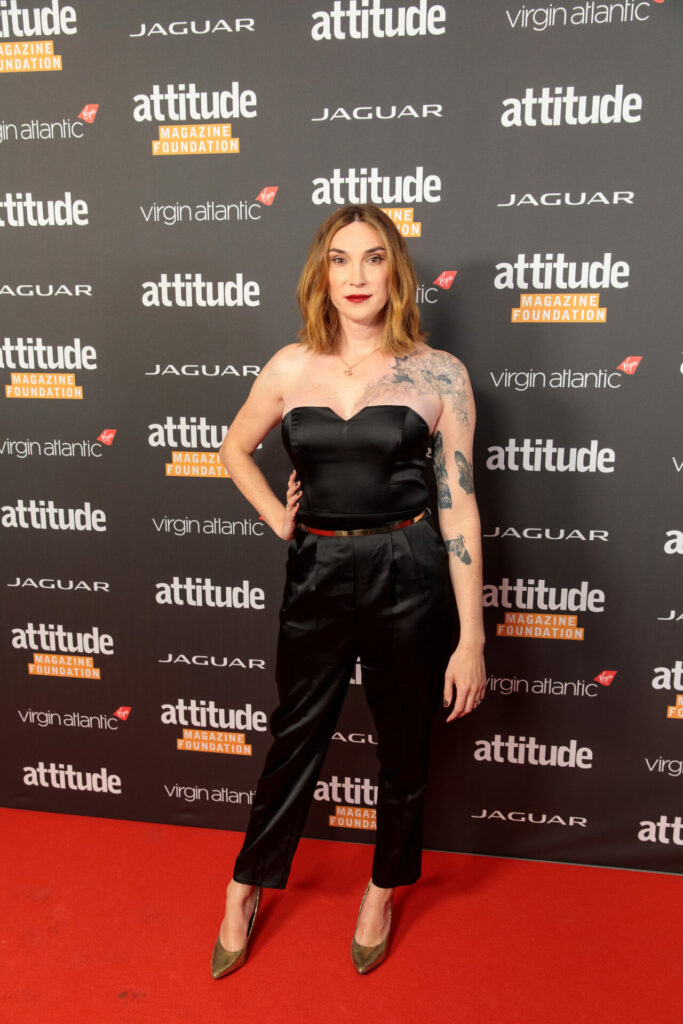‘Why is it so many witches appeal so strongly to queer audiences?’
"I feel, as a trans woman, that there’s a very real witch-hunt in progress in 2023. It seems there is little trans people won’t be accused of online and in the media," writes Juno Dawson.
By Juno Dawson

Last year, the queer Wanda Maximoff hive was deeply unhappy. Dr. Strange in the Multiverse of Madness did her so dirty. After going on a superlative allegorical journey through her grieving process in WandaVision, Wanda was quickly reduced to a campy, hysterical villain in the Dr Strange sequel. The reaction was less than enthusiastic.
Even more beloved than Wanda (arguably) was her much-memed costar Kathryn Hahn as Agatha Harkness. The witch is about to get her own spin-off Agatha: Coven of Chaos, also featuring queer faves Joe Locke (Heartstopper) and Aubrey Plaza (The White Lotus). Sounds camp, I’m in.
Why is it so many witches; usually female, usually straight, usually cisgender, appeal so strongly to queer audiences? Elphaba in Wicked or Ursula in The Little Mermaid are so ‘queer-coded’ it’s sometimes easy to forget that Elphaba isn’t actually a lesbian on stage, and nor is Ursula a drag queen.

Seeing female characters unleash or harness their innate power comes with a universal joy. We exist within a patriarchy, and seeing women tap into their inner strength is inspiring, always. Whether it’s Taylor Swift exposing dreadful exes via song, or Buffy’s Willow Rosenberg ripping the skin off the man who killed her girlfriend, that’s deeply satisfying stuff. We all have an appetite for poetic justice.
The fascination with witches goes deeper than aesthetics. It’s a wig-snatch moment when Wanda evolves in Scarlet Witch or when Jean Grey goes Dark Phoenix, but I think there’s more going on thematically. In Arthur Miller’s The Crucible, a group of teenage girls are caught dancing naked in the forest, allegedly communing with the devil. There follows a fevered trial, with accusations and recriminations flying. In the end, blame falls on Tituba, an enslaved Bajan woman – the most marginalised woman involved in the Salem witch trials.
I wonder if that’s the core of the appeal for queer audiences. Witches are, almost always, oppressed women. They’re the misfits, the outsiders, the hags and freaks. As far as we have come on, culturally, queer people still face disproportionate harassment and prejudice. Even the most privileged in our community have had a taste of hatred. And so, witches – often born that way – use their powers not only to rise up against men, but to tackle their specific discrimination.
“There’s a very real witch-hunt in progress in 2023”
This sometimes places the witch in a morally grey area, where they use violence and trickery to destroy their oppressors. Nancy and Rochelle in The Craft maim the school bullies – one a misogynist, and the other a racist. We cheer on Willow in Buffy on as she seeks bloody vengeance for her girlfriend’s death. This is prime wish-fulfilment for any queer person who had a rough ride in high school.
The subtext emerged with lesbian witch Willow. Her LGBTQ status didn’t need to be a metaphor. I wanted to do the same thing in my Her Majesty’s Royal Coven trilogy. The women are outsiders because they are queer and witches. The first book explores how a coven, a female-only space, treats a teenage witch who happens to be transgender. Some of the coven welcome her; others…less so.
I feel, as a trans woman, that there’s a very real witch-hunt in progress in 2023. It seems there is little trans people won’t be accused of online and in the media. There is a very real moral panic about trans youth, acutely reminiscent of the Salem girls dancing in the forest at midnight – only this time they’re dancing to Kim Petras, and asking for hormone blockers. I wanted to explore this allegorical media witch-hunt by turning it into a real one for the novels.
All LGBTQ people live with the threat of persecution hanging over us. Look to Florida, right now, where Ron DeSantis is introducing a slew of laws that will make life unbearable for all of us. We, like Tituba, are the political scapegoat. It’s nothing new, either. In the 90s, it was gay people, and now it’s trans ones. Like Wanda, we need to form a unified coven and tap into our innate strength. Perhaps that’s the final power of the witch; their covens. Found family is something that has brought me a great deal of strength in numbers, and I have a feeling we’re going to need it, witches.
